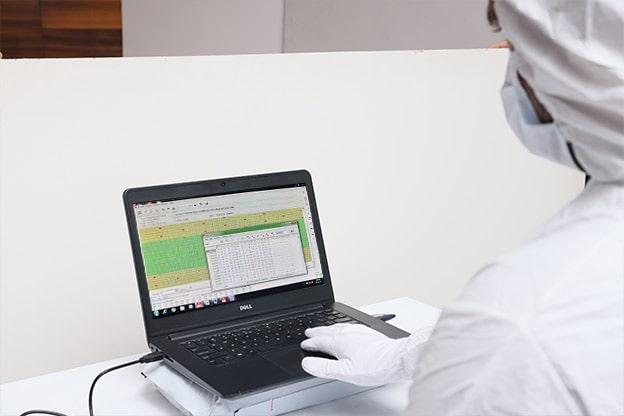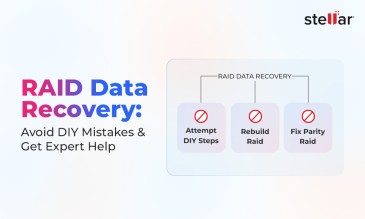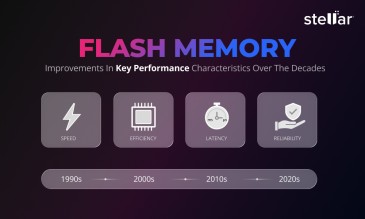Stellar Data Recovery for Windows
Exclusive Offer- Enjoy Unlimited Data Recovery for 1 Month @ ₹3,999
- Get Instant Key
- Get Service Coupon worth ₹ 1,500
- Free Technical support
What Causes Bad Sectors on Hard Drive?
1. Address Mark Corruption
When the Address Mark is corrupted, it renders the hard drive incapable to find the requested sector. The data on the drive may be intact, but it is impossible to locate data without a proper ID. The modern HDD does not use sector ID/Address mark in the sector. Instead, the information is encoded in the preceding sector.
2. Data Corruption
To keep the sanctity of the data intact, a hard drive will always try to validate the data through an Error Checking and Correction Algorithm. This is done by referring to the ECC code written after the data field. In the case the data is corrupted, the hard drive will try its best to recover it by deploying the corresponding ECC algorithm. In the case the correction process succeeds, the drive will return the sector data and will not return any error whatsoever.
However, if the correction process fails, the drive will only return an error and no data, even if the data is partially intact.
3. ECC Field Corruption
Although this is rare, the ECC code can also get corrupted. In this case, the drive reads the data from the sector and verifies for ECC code. If ECC code mismatches then drive returns with an error and no data. This is because there is no way to verify the integrity of data.
4. Overheating
The normal operational level of a hard drive is between 20-25 degree Celsius. If the drive is constantly subjected to higher temperatures, this can cause damage to the internal hardware.
This also works the other way around. If a hard drive contains bad sectors, constant usage will subject it to overheating. This, in turn, will end up damaging more sectors in the drive.
5. Over-aging
Every electronic device has a certain expected lifespan associated with it that should not be crossed in an ideal scenario. Overusing the hard drives for multiple years can also lead to rampant bad sectors.
6. Virus/Malware Attacks
If you do not have a robust anti-virus system in place, it can seriously undermine the quality of your storage space in the long run. Powerful viruses and malware can end up corrupting data on the hard drive. Such data corruption can internally damage your hard drives, being the cause of hard drive bad sectors.
7. Dust
The most overlooked factor, dust is often considered one of the leading causes of bad hard drive sectors. This is mainly because accumulated dust on the internal circuit components can interfere with the heat dissipation process. This eventually ends up damaging the drive in the long run.
What are the Symptoms of Hard Drive Bad Sectors?
When Hard Drives encounter any kind of failure or corruption, they give out all kinds of signals. The symptoms of hard drive bad sectors that can be noticed are:
- The hard drive takes time to boot
- System Boot time, load time, or shut down time is increased
- SMART tools start running automatically to fix the bad sectors
- Files and folders begin disappearing abruptly
- The drive keeps on hanging or freezing while usage
- The system unexpectedly shuts down without any intimation
- Files and folders are found to be either corrupt or inaccessible
- Cryptic error messages can be seen on the screen

How to Prevent Bad Sectors in Hard Drive?
Users can take following measures to prevent hard drive bad sectors:
- Keep your computer/laptop/external hard drive free of dust particles.
- Do not touch or move the device when it's on.
- Make sure your system is adequately
- Ensure the hardware cables are tied tidily.
- Use of surge protector is recommended to protect system from improper shut down.
- Regularly check for viruses and malware
- Install a good anti-virus program.
- Use Disk Defragmenter tool on the drive to minimize the instances of "Soft Bad Sectors".
About The Author
Content writer and digital marketing expert with 10 years of experience.




 Buy Now
Buy Now

.jpg)






